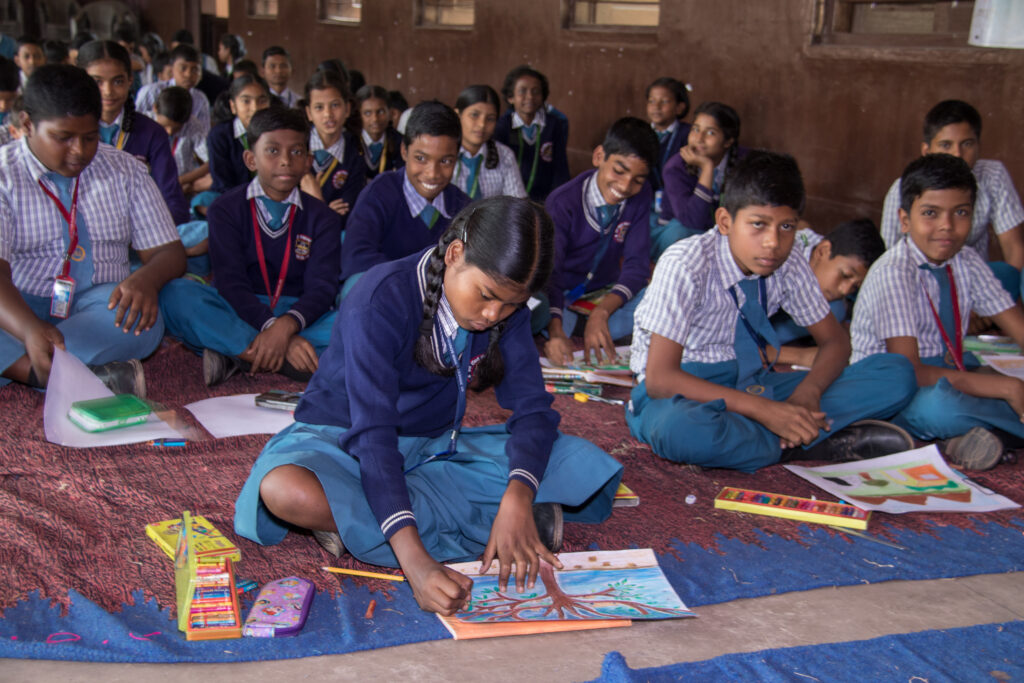Environment
Promoting practices that respect nature and the living world
For people who depend on cultivating and producing from the land, such as those in rural and remote regions of India and Nepal, the environment plays an important role. Unfortunately, the effects of climate change are already being felt: severe droughts and torrential rains follow one another, having a major impact on vulnerable populations with no means of adapting.
Some figures : In Kathmandu, the number of vehicles has tripled in 10 years, exacerbating the air pollution problems facing the Nepalese capital, which will be classified as “the world’s most polluted city” in 2021. India, for its part, faces another major problem: the country produces around 6 million tonnes of non-recyclable plastic waste every year. A figure that is exploding due to strong growth in consumption.
Our environmental programs help communities to adapt and reduce these harmful effects over time, through family- or village-level solutions.

In India, our voluntary actions encourage the planting of trees along roadsides and in village communities to improve the well-being of populations in both urban and rural areas.
In Nepal, heavy rainfall following drought – combined with increasing deforestation and urbanization – is causing landslides. The environment is weakened, and air and water pollution have a major impact. Our activities strengthen the resilience of populations by providing them with solutions to improve their living conditions while preserving the natural environment that surrounds them.
Our impact in 2023

9,750 trees planted and maintained

23,087 jute bags distributed

17 665 young people
made aware of eco-responsible attitudes
One of our programs in India
A responsible attitude – Environmental awareness
In India, the excessive use of single-use plastics is causing serious environmental problems that people are not always aware of.
Through our awareness-raising campaigns, we aim to make local residents aware of the drawbacks and harmful consequences of their plastic consumption and management habits. We encourage them to use more environmentally-friendly alternatives, such as burlap bags, in order to minimize and eventually stop the use of plastic.
We work collectively in villages and schools to make future generations aware of their environmental impact. The regular distribution of bags among our patients, students and other beneficiaries, combined with a strong message of environmental awareness, helps to change social behavior.
It’s a great victory to witness the creativity and ideas of my students regarding environmental awareness, expressed through art and tangible actions. The awareness program is a joyful moment covering a multitude of topics essential to our common future. The students have gained immense inner richness from it.
Manik Lal Matho, elementary school principal – India